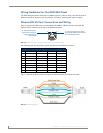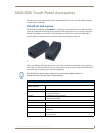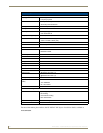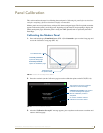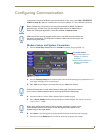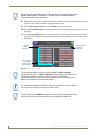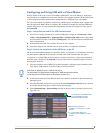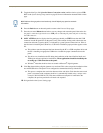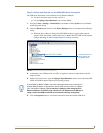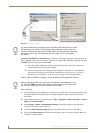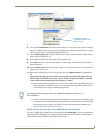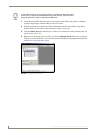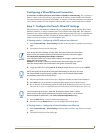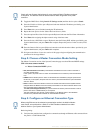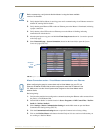
Configuring Communication
26
NXD-500i 5" Wall/Flush Mount Touch Panel with Intercom
5. Toggle the blue Type field (from the Master Connection section) until the choice cycles to USB.
Refer to the System Settings Page section on page 59 for more information about the fields on this
page.
6. Press the Back button on the touch panel to return to the Protected Setup page.
7. Press the on-screen Reboot button both to save any changes and restart the panel. Remember that
the panel’s connection type must be set to USB prior to rebooting the panel and prior to inserting
the USB connector.
8. ONLY AFTER the device displays the first panel page should you THEN insert the mini-USB
connector into the Program Port on the panel. It may take a minute for the panel to detect the new
connection and send a signal to the PC, as indicated by a green System Connection icon. If this is
the first time for installing the USB driver, a USB driver installation popup window appears on the
PC.
This window states that the panel has been detected by the PC as a USB-compliant device and
the PC is installing an appropriate USB driver to establish a proper communication to the
panel.
This driver was installed on the PC during the installation of the latest NetLinx Studio and
TPDesign4 software application installations. These applications should be installed prior
to setting up a USB connection to the panel.
Windows
®
notes that the driver does not contain a Microsoft
®
digital signature.
9. Click Yes when told that a digital signature was not found. This action accepts the installation of the
new AMX USB driver. The panel is now configured to communicate directly with the PC.
This process completes the association between driver and device. Each time the same touch
panel is connected to the computer, the driver is automatically loaded (using a unique name -
example USB LAN LINK #1, #2). Each time a different touch panel is connected to the
computer, the previous procedures will need to be repeated.
10. Navigate back to the System Settings page.
ALL fields are then greyed-out and read-only, but still display any previous network
information.



